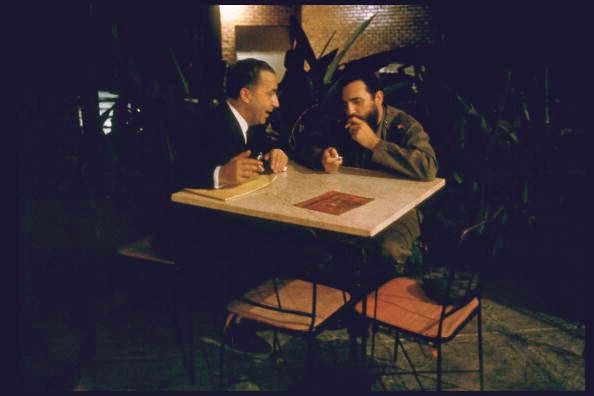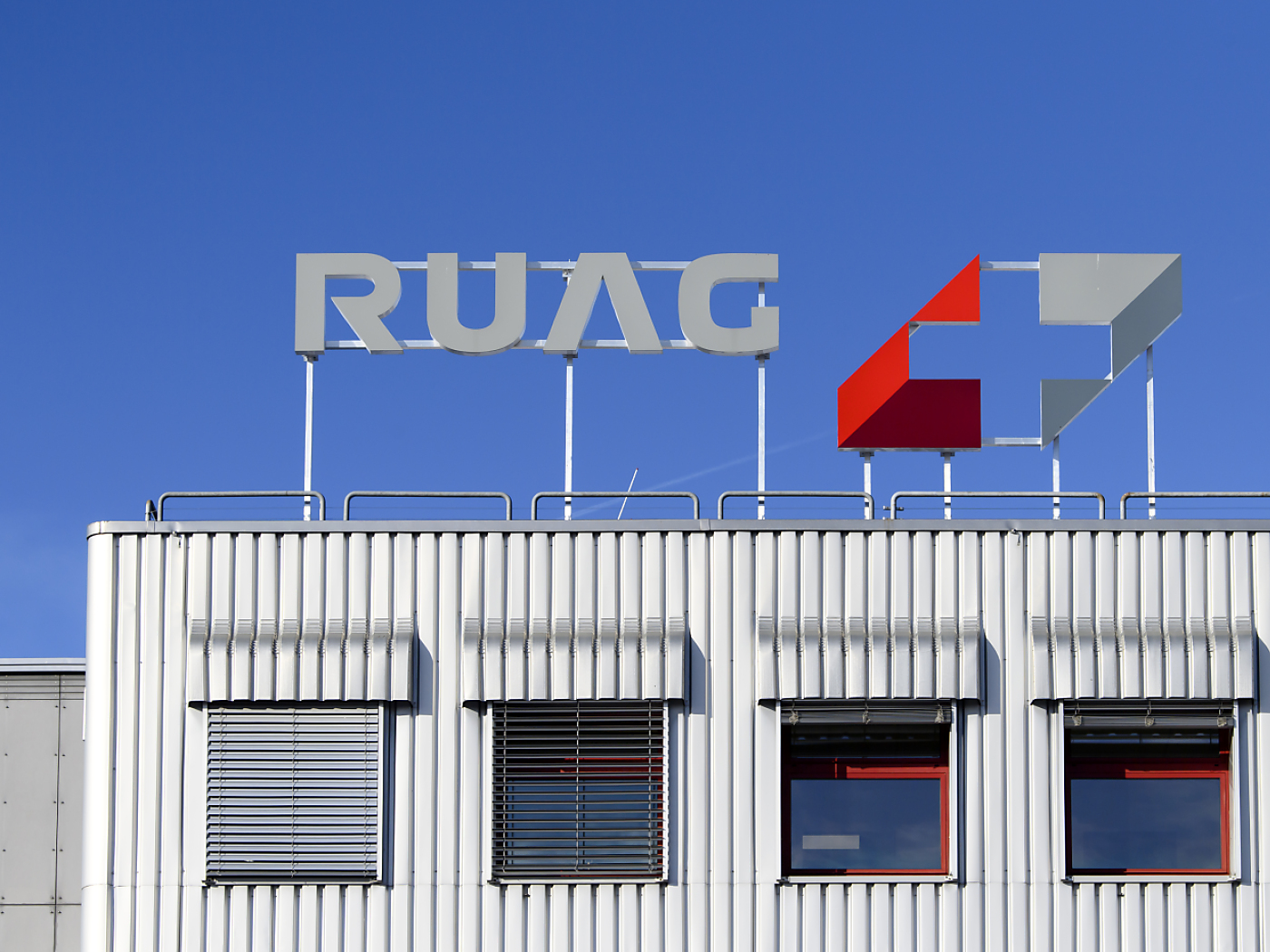Cuba-US: time to lower the Swiss flag – and open banks?

With Washington and Havana reopening embassies, another chapter of the Cold War comes to a close, together with half a century of Swiss diplomatic mediation. What role did Bern play amid two diverging world views which nearly obliterated the planet? And what could that role be within the current phase of the Cuban Revolution?
“Due to its historic position and its experience, Switzerland is ideally positioned to accompany the current process of transition in Cuba,” the Swiss foreign ministry told swissinfo.ch.
As early as 1961, because of its status as a neutral country, Switzerland received a request from the United States to represent its interests towards the Cuban government.
In 1959, within 72 hours, Washington had recognised the government which resulted from the Cuban revolution. But the honeymoon was short-lived. Two years later, the US embassy’s staff boarded a ferry to return home.
“It was a huge disappointment,” Wayne Smith, the delegation’s third secretary and later head of the US interests section chief, recently told AFP news agency.
Switzerland then assumed a thorny task, especially during the Cuban missile crisis in 1962, a key moment during the Cold War which followed the attempted invasion of the Bay of Pigs, when the Soviet Union positioned missile launchers capable of striking Washington. Swiss diplomatic records acknowledged “the threat of a third world war, but a nuclear one, this time”.
The same source, which recently published a special dossier on Switzerland’s representation of US interests in Cuba, mentioned that while the crisis was finally resolved between Moscow and Washington, “Swiss diplomacy played a primary role”. Ambassador Emil Stadelhofer was called to mediate with Fidel Castro and later organised the transfer of the body of US pilot Rudolf Anderson, shot down over Cuba.
The Camarioca refugee crisis (1965-1973) represented another event involving Swiss diplomatic efforts. More than 260,000 Cubans fled the island, initially by sea, and then by air, with the authorisation of the countries of origin and destination.
“We never decided who would go and who wouldn’t,” Werner B.* told swissinfo.ch. “We interviewed people with special problems and who were beyond military age [15-27] whose names were on lists provided by the Cuban authorities, and we transferred reports to the US authorities.”
It was a titanic endeavour. “Between 3,000 and 4,000 people departed every month. Full planes took off. There were two flights a day. The first arrived (in Varadero) between six and seven o’clock in the morning. Two immigration officials and a doctor would come on board. They checked the passengers’ documents and their health.”
Werner was 24 when he was employed by Bern to strengthen personnel at the Swiss embassy. “We received hundreds of letters every day from people who would enquire about their applications or what they needed to do to be on the [emigration] list. We replied to everyone, sometimes with standard replies. It was an enormous job.”
Werner later became a full member of the Swiss diplomatic service and travelled to many countries. Now in retirement, he nostalgically evokes the year he spent in Cuba, including the interminable administrative duties and the return trips between Havana and Varadero. Above all, he remembers the apprehension of the applicants, the pain of separation [men of military age were not authorised to emigrate] and the generosity of people willing to share the little that they had. “In Cuba I truly understood what the human condition was.”
In 1991, with the fall of the Soviet bloc, Czechoslovakia stopped representing Cuba in the US and Switzerland took over. But Swiss duties had been alleviated starting in 1977, when US President Jimmy Carter and Cuban President Fidel Castro agreed on the opening of interests sections between the two countries.
Historic milestone
On July 20, the embassies become embassies once again – Swiss intervention had prevented the US mission from being converted into Cuba’s fisheries ministry.
Cuban relations: a timeline
January 3, 1961: United States and Cuba cut diplomatic relations. Switzerland starts to represent US interests in Havana (until July 20, 2015).
From 1991 until July 20, 2015 Switzerland also represents Cuban interests in Washington.
In 1977, the United States and Cuba establish bilateral interest sections.
December 17, 2014: Raul Castro and Barack Obama announce the re-establishment of diplomatic relations.
May 29, 2015: the United States removes Cuba from its list of countries sponsoring terrorism.
July 20, 2015: Resumption of normal diplomatic relations and opening of embassies
While the time has come for the Swiss flag to be lowered, members of parliament and business people suggest that bilateral exchanges can be raised.
“And the first thing is to re-establish banking relations with the island,” Andreas Winkler told swissinfo.ch. The president of the Swiss-Cuban chamber of commerce believes it is “shameful” that in spite of the good reputation of Swiss banking “in Cuba there is not a single Swiss bank”.
Due to an “overreaction by the banks following problems with the US” on fiscal matters, Winkler expected representative offices to focus on assisting businesses eager to do business in Cuba, rather than to focus on private banking services.
Hans-Peter Portmann, a member of the centre-right Radical Party and leader of the Swiss-Cuba group in parliament, agreed on the importance of increasing exchanges with Havana, given the amount of public confidence in Switzerland and Cuba’s natural and human resources.
“Now we are no longer terrorists,” joked Winkler, who said the reactivation of diplomatic relations between the island and its powerful neighbour was the “most important development” that he had experienced in the 22 years he has lived on the island.
He explained that following Cuba’s removal from the US list of countries sponsoring terrorism – “which was never justified” – and the resumption of diplomatic ties, “reason has been re-established” with the end of the economic embargo, which “caused so much harm to Cuba”.
Parliamentary decision
In May, Portmann presented a motion in parliament seeking to “intensify intergovernmental cooperation with Cuba”, on economic matters, research and education. It also proposed to establish a bilateral free trade agreement. The idea, he said, “is to contribute to the improvement of the economic situation in Cuba and to reduce Swiss dependence on the United States and the European Union”.
But parliament rejected the proposal, arguing that trade between the two countries is meagre. Official figures show that in 2014, Cuban exports amounted to CHF31.2 million ($33 million) and Swiss exports to Cuba totalled CHF17.8 million. Winkler said these figures do not take into account products passing through third countries and represent only 10% of all commercial exchanges.
The Swiss foreign ministry also considers existing development cooperation programmes, which provide CHF10 million to the island a year, to be sufficient.
The ministry told swissinfo.ch that Cuba regards Swiss technical cooperation as a model. “The size and importance of technical cooperation should strengthen in the coming years, given [Cuba’s economic] reforms and the thawing of relations with the United States that will open opportunities, while inequalities will be overcome within the Cuban population”.
With the possibility of stronger bilateral cooperation, Livia Leu, head of bilateral relations at the State Secretariat for Economic Affairs (SECO), will attend the Havana International Fair in November as a guest. Portman is encouraged by Leu’s expected presence at the fair.
According to the Radical Party, Bern is not currently ready to take further political moves. “For now, major trade cannot be achieved, but one can establish contacts and explore future possibilities. And it’s important that Switzerland positions itself immediately,” Portman said.
“Why [can’t major trade be achieved]?” Winkler asked. “When we opened the chamber of commerce 12 years ago, some people thought it would not work, that it was not possible to trade with Cuba. However, now we have 61 members, of whom ten are quoted on the New York stock exchange.”
* Name withheld
The US and Cuba will re-open their embassies on Monday. The Cuban foreign minister Bruno Rodríguez will participate in a ceremony at the Cuban Interests Section in Washington (16:30 Swiss time) where the Cuban flag will be raised. Diplomats will have to wait until US Secretary of State John Kerry’s visit to Cuba in August to raise the American flag at US Interests Section in Havana.
Switzerland’s role as “protecting power” between the two countries has come to an end. On July 1, the Swiss foreign ministry referred to a letter sent by Kerry in January that expressed his “deep gratitude” for Switzerland’s efforts and said that its services during the Cold War, was “an inspiration to us all and a monument to patience in the service of peace”.
Swiss journalist Regula Ochsenbein was 13 years old at the time of the Missile Crisis and understood little about politics at the time, but was nonetheless aware of the gravity of the situation. She therefore decided to send a letter to the Soviet leader, Nikita Khrushchev, addressed to “Red Square, Moscow”, requesting that he would do the utmost to avoid war. “As I did not have the money to buy a stamp, I drew one on the envelope and then mailed the letter.” She was convinced that the postal authorities would understand the letter’s importance, and would send it…”
Translated from Spanish by Paula Dupraz-Dobias

In compliance with the JTI standards
More: SWI swissinfo.ch certified by the Journalism Trust Initiative










You can find an overview of ongoing debates with our journalists here . Please join us!
If you want to start a conversation about a topic raised in this article or want to report factual errors, email us at english@swissinfo.ch.